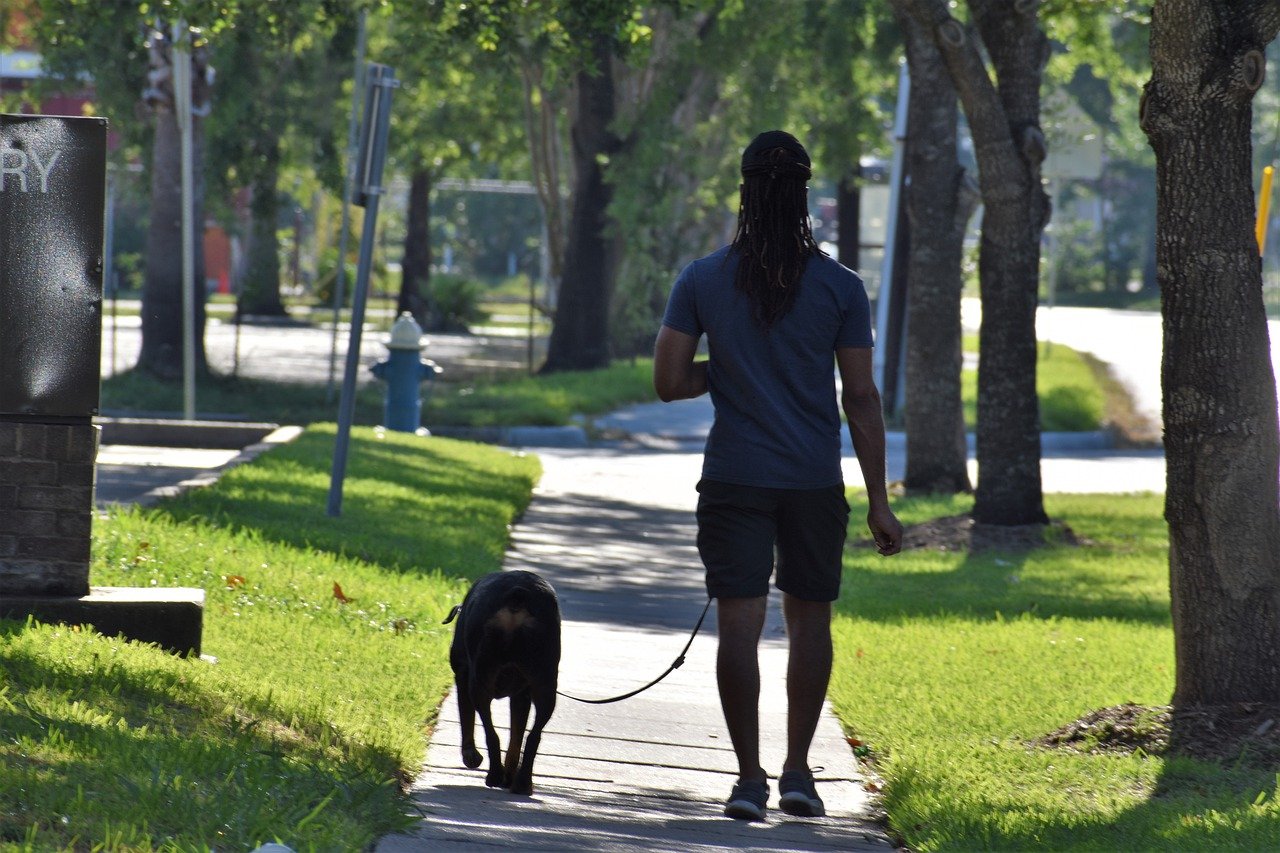German Shepherds are highly energetic dogs, and they require regular exercise to maintain to keep their muscles in check. One of the easiest exercises for German Shepherds is dog walking. Ideally, you should walk your pooch for several hours every week. But, how long should you walk your German Shepherd every day?
You should walk your German Shepherd for at least one hour every day. However, the duration can vary depending on your dog’s age, fitness level, general health, and food intake. Ideally, a younger energetic dog would require more hours of walking than an elderly, ailing dog. Some of the exercises you can engage in include walking, running, or playing.
Contents
When Should I Begin Exercising My German shepherd?
As soon as your German Shepherd puppy is 8-weeks old, you can introduce them to exercises. Start walking your puppy by taking 10 minutes continuously at a slow and relaxed pace. Add 5 minutes of walking each month as your puppy grows old
Make sure not to push the young one too hard since it can be dangerous. Until the puppy is two years, avoid jumping and running otherwise, it will hinder their growth. Their bones and joints are very weak since they are still growing.
It is recommended to walk your dog on soft surfaces like grass. If you have a concrete backyard, you should not walk your dog more than a block to avoid injuring their paws. When they show signs of lagging, continually stopping, and laying down, it’s advisable to end the walk. Make the walks fun and casual to build up their strength to endure longer distances.
How Much Walking is appropriate for a German shepherd?
When choosing an exercise routine for your dog, try an exercise you can maintain for a long time. Start walking your dog at a young age to establish a routine for a healthy lifestyle. These activities will help your dog both physically and mentally.
You should figure out the amount of exercise your dog requires and can handle. For starters, you can try off-lead exercises in a safe area. Add extra playtime for training since German shepherds are high-energy athletic breeds.
If you are walking a puppy, start with small walks and include play sessions. Older German shepherds should take 90 minutes to exercise. Take one or two walks to satisfy their need for activity. Offer your German shepherd tasks to complete and chances to release energy through walking, hiking, running, and playing with other dogs.
Why should I walk my German shepherd?
Dogs require exercises for their physical and mental growth. Walking your German shepherd creates an opportunity for it to explore the new environment, work on training, socialize with other dogs and people, and maintain good behavior outdoors.
Walking will create a platform for the dog to be conversant with the outside world. These interactions also help you understand your dog better, and you can know when something is odd with your dog.
How to tell your German shepherd is not walking enough
Since your German Shepherd cannot express himself as humans do, you should watch out for common signs and symptoms of a sedentary lifestyle.
Here are some signs you might notice:
Excessive barking
Dogs use vocalization to release energy when they are asking for attention or acting out of vigilance. Your dog can use barking as an attention-seeking method to communicate when they are bored or restless. German shepherds will bark excessively to express hyperactivity.
Destructive behaviour
Due to boredom, your German shepherd may adopt bad habits to redirect the energy that was to be released through play or exercise. The behavior can be frustrating and unhelpful.
Your German Shepherd can engage in destructive behavior to relieve the monotony and boredom. He will go to the extent of tearing apart shoes, digging aimlessly, or even tearing up your sofa.
Lethargy and depression
Depression and lethargy may be a result of poor physical health that affects the German shepherd mentally. Your dog will be unhappy, unmotivated, and lack the zeal to exercise. You will notice your dog having changes in how long they sleep and their feeding patterns.
Gaining weight
Weight gain is not noticeable but you can tell from how your dog is behaving. Extra weight is not recommended for German shepherds and can bring major health problems. These problems include arthritis, mobility difficulty, respiratory problems, and heart problems. Make sure to maintain a routine for the dog and consult a veterinarian if need be.
Conclusion
Creating a routine for a German shepherd is important for a healthy lifestyle. Apart from walking your dog, you should indulge your dog in other exercises like running, jumping, or chasing toys.
While considering the type of exercise, it is important to keep in mind your dog’s age to avoid overstressing and overworking it.
Start with simple short walks and proceed to more difficult ones as the dog continues to grow. Let your dog tell you when it is enough by looking for signs of depression, excessive barking, fatigue, and continually being dormant.
